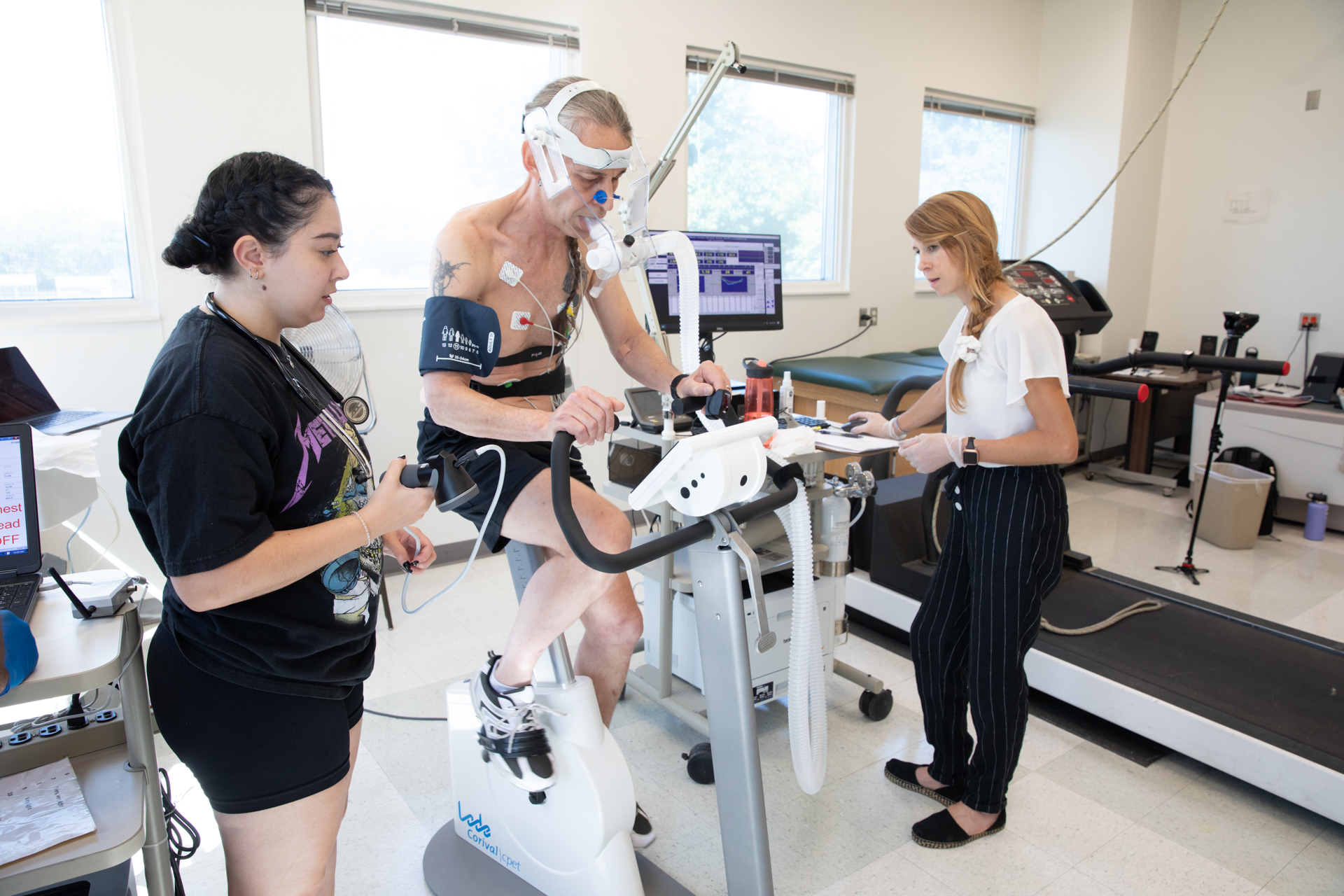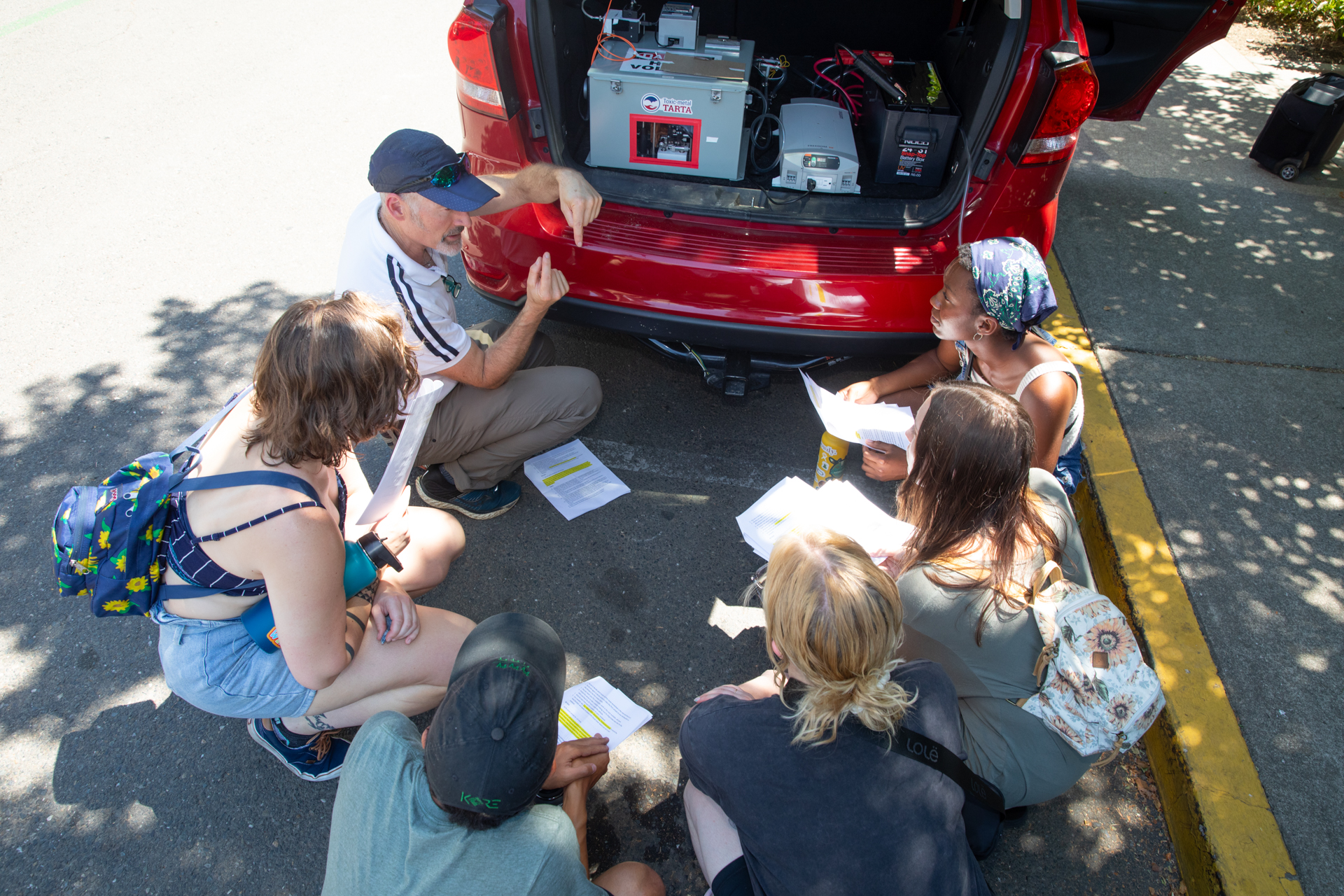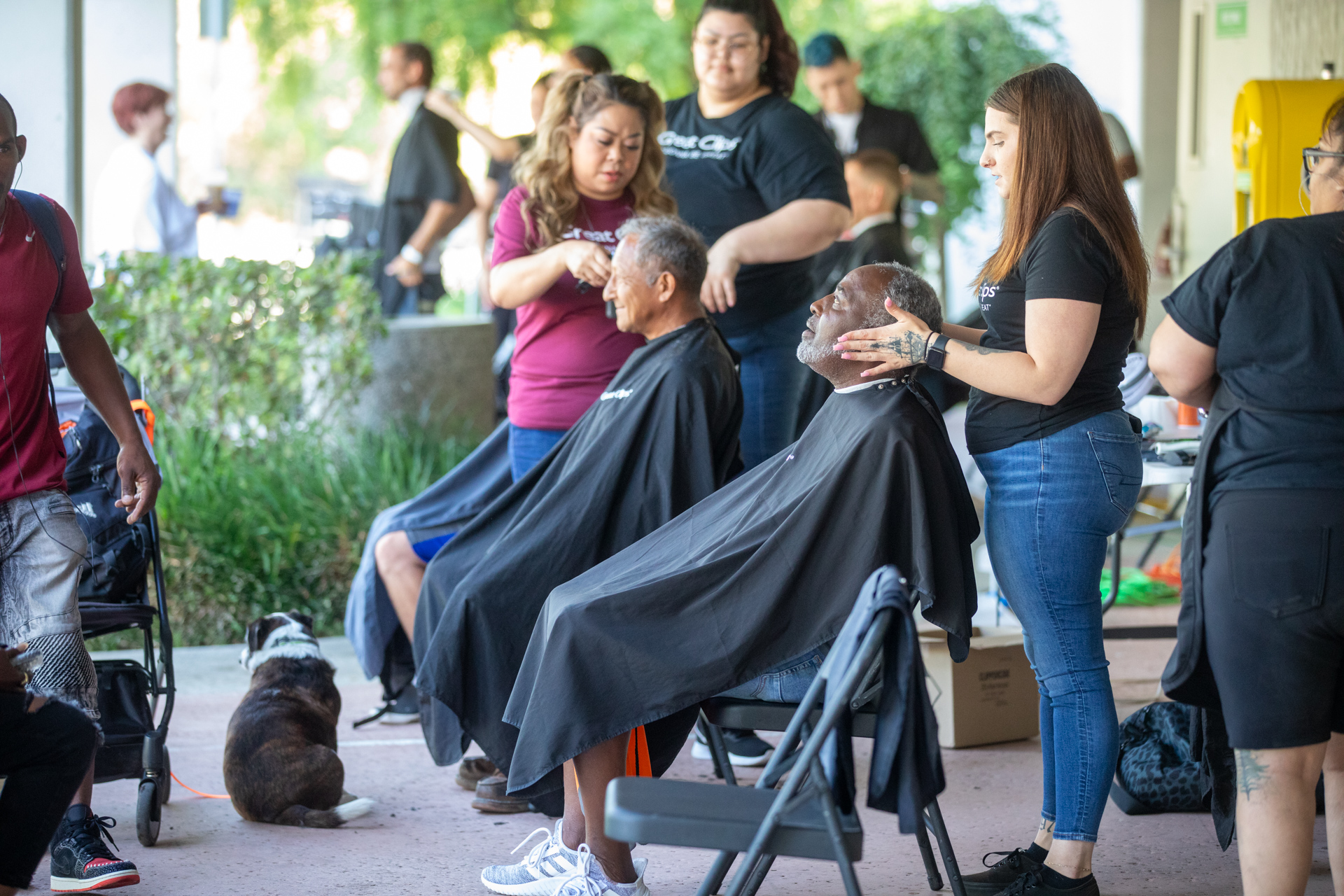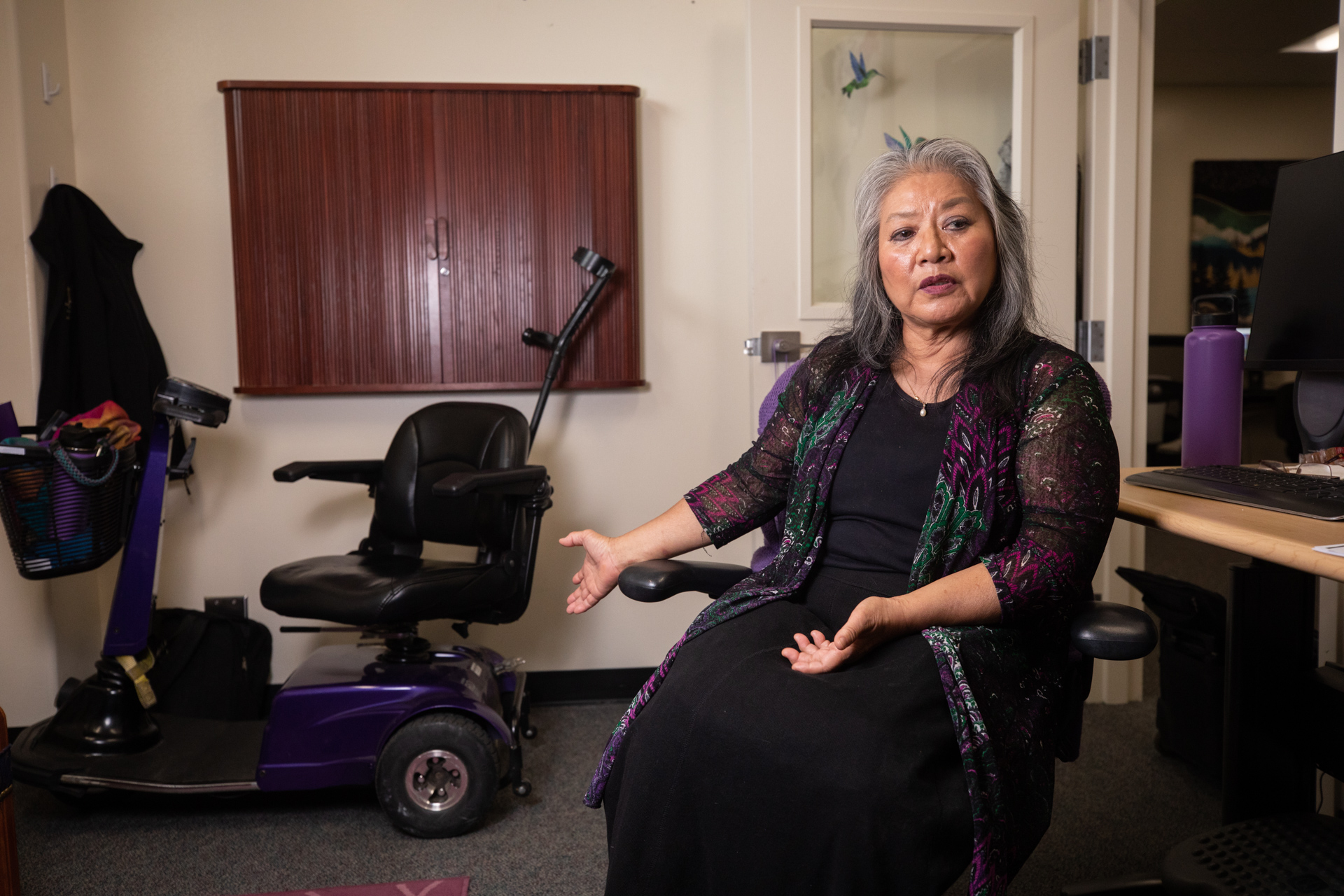Story Content
Sac State study will gauge whether exercise can improve the lives of Parkinson’s patients
August 18, 2023
Can physical exercise play an important role in slowing the progression of Parkinson’s disease? A new Sacramento State study may help answer that question.
Kinesiology Professors Matt Brown and Gwen Begue are monitoring the exercise habits of people who have been diagnosed with Parkinson’s or related conditions, measuring whether their activities positively affect biomarkers in the blood that promote brain health. Such changes could possibly lead to fewer symptoms and less disability.
Parkinson’s disease is a brain disorder marked by tremors, slowness of movement, stiffness, and difficulty with balance and coordination. It can also cause other symptoms, including depression and emotional stress. The condition typically worsens over time.
A growing body of evidence has shown that regular exercise can help Parkinson’s patients manage symptoms including motor function, hypotension, and mood disorders, and may slow progression of the disease.
The Sac State study will document the effects of physical activity by assessing changes in key biomarkers in the blood as well as shifts in behavior and motor skills.
“We want to look at changes over time, gather evidence to see if exercise can actually help modify the disease,” said Brown.
In documenting both visible changes as well as molecular shifts, Sac State’s research is different from most other Parkinson’s studies, which only look at one or the other.
“I’m interested in any kind of study that might benefit me and others in the future." -- Kim Forrester, research participant
About two dozen patients, recruited through the Parkinson’s Association of Northern California, are taking part in the pilot study this summer. The researchers have received several small grants from Sac State and a private foundation to fund the pilot, and are looking for additional funding to continue the work.
The researchers are collecting data from participants in multiple ways. First, they take medical histories of Parkinson’s patients via Zoom, and discuss their exercise habits. Then participants come to campus for further evaluation.
One such patient is Kim Forrester, whose most prominent Parkinson’s symptom is a persistent tremor in his left hand. He sat inside a Solano Hall lab on a recent day while Brown and two student researchers recorded his brain activity using a machine that delivered magnetic pulses through a coil placed on his head. A computer screen flashed data as they worked.
Forrester believes that physical activity helps him manage his Parkinson’s symptoms and was excited to learn that Sac State was seeking to document the possible link.
“I’m interested in any kind of study that might benefit me and others in the future,” said Forrester.
The researchers will evaluate Forrester’s blood for specific biological markers believed to promote brain health and look for evidence of whether exercise and fitness can help slow progression of the disease.
“Even if we are able to show that symptoms flatlined, that could be a sign that exercise is disease modifying,” because Parkinson’s is a degenerative condition, Brown noted.
Forrester, a former scuba instructor who also enjoys skydiving and boxing, is convinced that exercise has helped him maintain his health.
“I do some type of exercise six times a week,” he said. “I think it’s the best thing that you can do for yourself.”
Story continues below the image.

About a week later, Forrester came to Solano Hall’s Exercise Physiology Research Lab, where, after a blood draw, he hopped onto an exercise bicycle for 20 minutes. Electrodes on his chest and a face mask attached to a tube measured his aerobic fitness, including his heart rate and oxygen consumption.
While Forrester pedaled and listened to music, student researchers recorded his blood pressure and frequently asked him about his fatigue level.
The research team cheered and encouraged him as he rode.
“Everything is looking great here,” Begue said as she studied information appearing on a computer screen in front of her.
“You’ve got this, Kim!” others said. “Keep digging!”
Once he got off of the bike, Forrester submitted to a second blood draw, and then a third an hour later. His blood, and that of other study participants, will be evaluated for molecules that are linked to brain health.
After the first phase of the study is complete, perhaps this winter, researchers will compare all of the data gathered to information from members of a control group who have not been diagnosed with Parkinson’s or related conditions.
Ultimately, Begue said, the project could contribute to research on whether Parkinson’s patients can benefit from “exercise prescriptions” designed to combat specific symptoms.
Motor symptoms usually are the first obvious signs of the disease, said Brown. “But there is a slew of other symptoms that can signal Parkinson’s far earlier,” including gastrointestinal problems and hypotension.
Exercise may work particularly well for people in the early stages of the disease, but could offer help for patients of all levels of disability, the researchers said.
“We want to see if exercise can stimulate biomarkers that could lead to a slowing of the disease and a decrease in symptoms for Parkinson’s patients,” said Begue. “That’s the big picture.”
Editor's Pick
Media Resources
Faculty/Staff Resources
Looking for a Faculty Expert?
Contact University Communications
(916) 217-8366
communications@csus.edu


